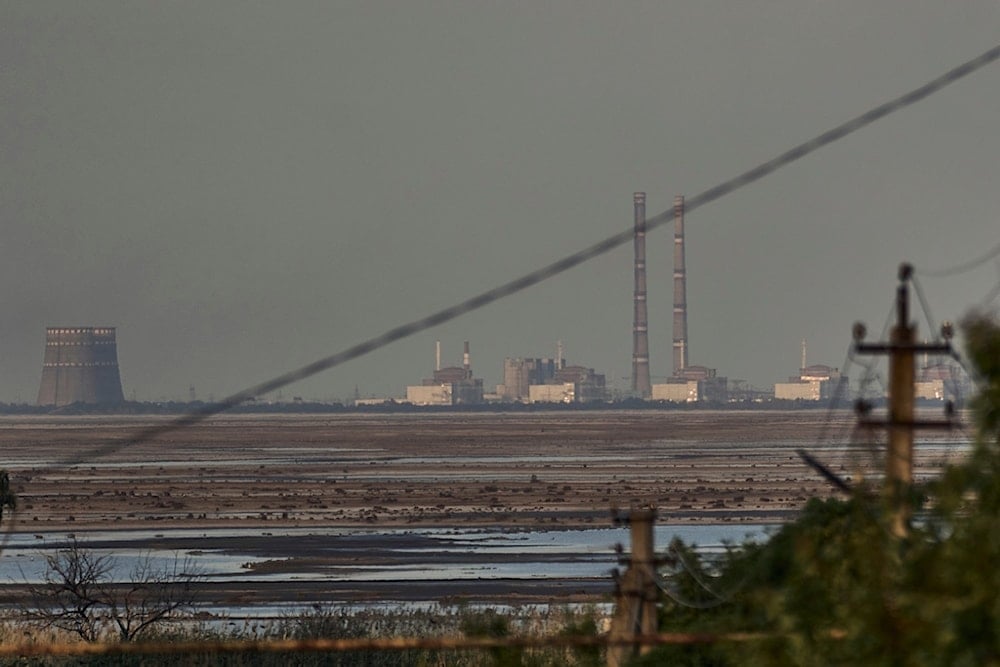Russia plans to reconnect ZNPP to grid, aims full reactor activation
According to the plant's administration, ensuring nuclear safety remains a top priority, especially given the ongoing risks from strikes by Ukrainian forces.
-

The Zaporizhzhia nuclear power plant, Europe's largest, is seen in the background of the shallow Kakhovka Reservoir after the dam collapse, in Energodar, Russian-occupied Ukraine, on Tuesday, June 27, 2023. (AP)
RIA Novosti reported on Sunday that Russia intends to reconnect the Zaporizhzhia Nuclear Power Plant (ZNPP) to the national power grid when circumstances permit. This announcement was made by Sergei Kiriyenko, Russia's first deputy chief of staff in the presidential executive office, during his visit to Energodar and the ZNPP.
Kiriyenko expressed optimism about the plant’s role in enhancing Russia's energy system, stating, "The Zaporizhzhia NPP will be reconnected to the energy system of our country as soon as the situation allows and will make a significant contribution to achieving energy sustainability in Russia."
While at the site, Kiriyenko met with officials to assess the plant’s progress and discuss strategic goals for 2025. He stressed the importance of preparing all six nuclear reactors for rapid activation, reflecting the ZNPP's potential as a vital energy resource.
Reactor activation
According to the plant's administration, ensuring nuclear safety remains a top priority, especially given the ongoing risks from strikes by Ukrainian forces. The plant's personnel continue to prioritize safe operations under challenging circumstances.
During a video call with Kiriyenko, Ramil Galiyev, CEO of the ZNPP Operating Organization, outlined the timeline for obtaining regulatory approvals. "By the end of 2025... we will hopefully receive a license to operate the first unit of the Zaporizhzhia plant. That is, by that time we should be fully prepared to ensure the plant's safe operation," Galiyev explained, adding that additional licenses for the remaining reactors would follow under Russian regulations.
Read more: Ukraine loses 400 troops, military equipment in a day: Russian MoD
Located near Energodar on the left bank of the Dnepr River, the ZNPP is the largest nuclear power facility in Europe in terms of capacity. The plant came under Russian control in October 2022 and has since faced repeated challenges, including damage from strikes during the ongoing conflict.
Kiriyenko reaffirmed the importance of the ZNPP to Russia’s energy landscape and its strategic plans, asserting that readiness for safe operation remains a key objective moving forward.

 2 Min Read
2 Min Read









